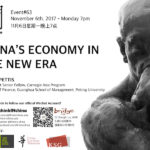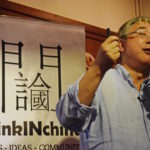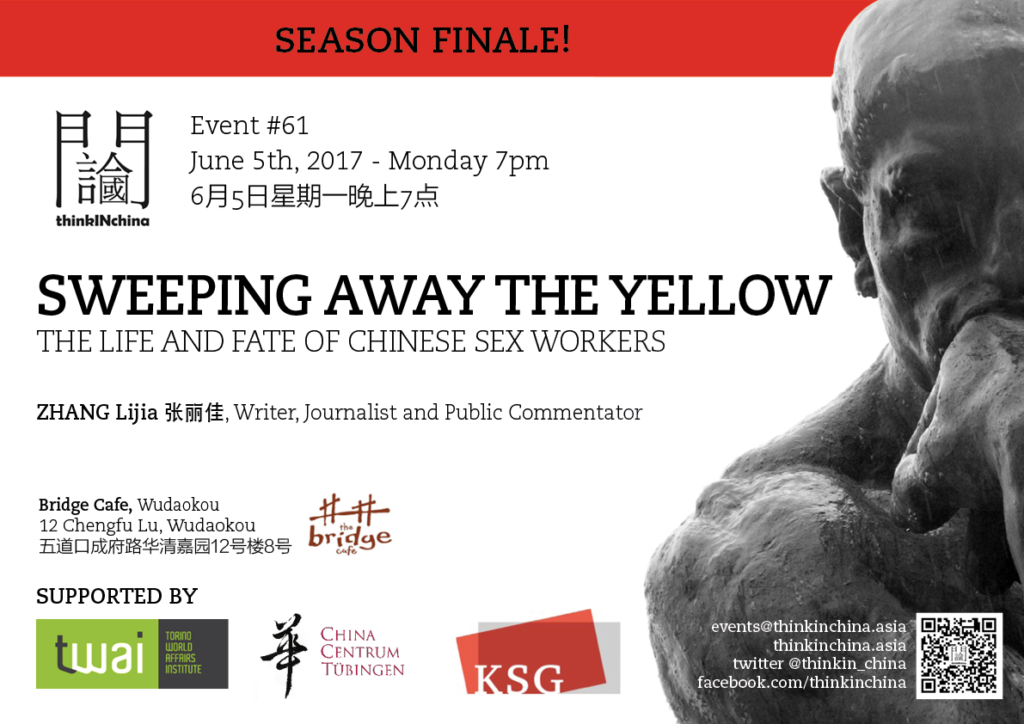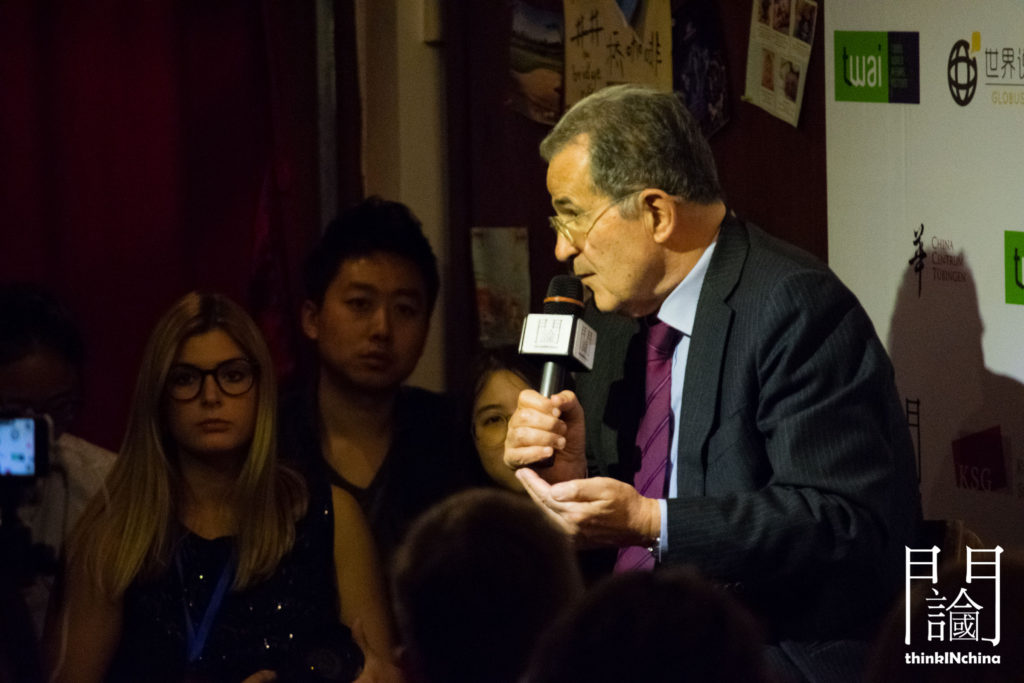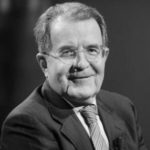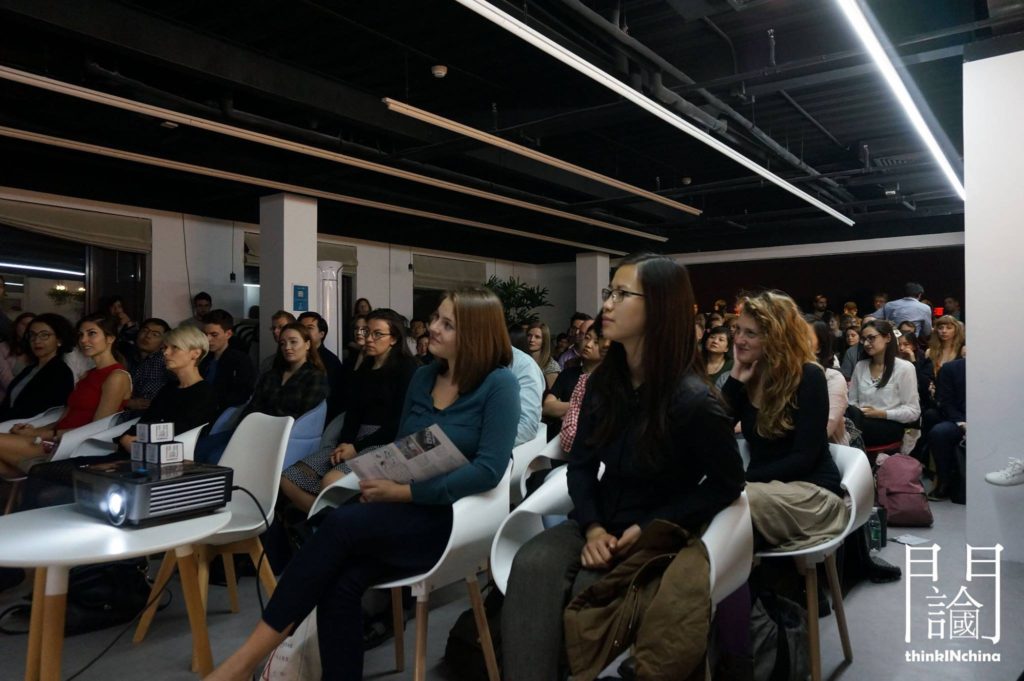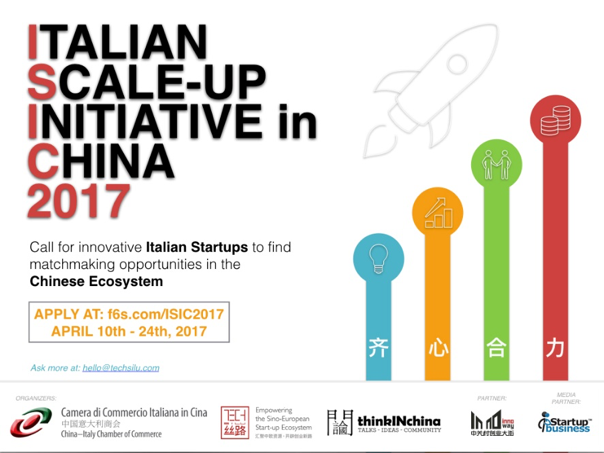-
22 Nov
Podcast #63 – China’s Economy in the New Era
Podcast
Related Posts
- 10000
- 10000
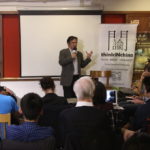 SPEAKER Michael PETTIS, Nonresident Senior Fellow, Asia Program, Carnegie Endowment for International Peace; Professor of Finance, Guanghua School of Management, Peking University The season’s second event hosted one of the most brilliant analysts of China’s economy, and financial markets in particular. Michael Pettis’ presence at The Bridge had been…
SPEAKER Michael PETTIS, Nonresident Senior Fellow, Asia Program, Carnegie Endowment for International Peace; Professor of Finance, Guanghua School of Management, Peking University The season’s second event hosted one of the most brilliant analysts of China’s economy, and financial markets in particular. Michael Pettis’ presence at The Bridge had been… - 10000
 Michael PETTIS Nonresident Senior Fellow, Asia Program, Carnegie Endowment for International Peace; Professor of Finance, Guanghua School of Management, Peking University MICHAEL PETTIS is a nonresident senior fellow in the Carnegie Asia Program based in Beijing, where he edits China Financial Markets, a monthly analysis on income inequality, market…
Michael PETTIS Nonresident Senior Fellow, Asia Program, Carnegie Endowment for International Peace; Professor of Finance, Guanghua School of Management, Peking University MICHAEL PETTIS is a nonresident senior fellow in the Carnegie Asia Program based in Beijing, where he edits China Financial Markets, a monthly analysis on income inequality, market…
Read more... -
22 Nov
Podcast#62 – The Beijing Consensus in Xi’s Second Mandate
Podcast
Related Posts
- 10000
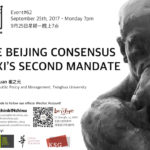 event #62 - Monday, September 25th, 2017 SPEAKER CUI Zhiyuan 崔之元, Professor, School of Public Policy and Management, Tsinghua University. ThinkINchina is back with the new Fall Season and honored to welcome professor Cui Zhiyuan, leading member of the Chinese New Left and the first person that introduced…
event #62 - Monday, September 25th, 2017 SPEAKER CUI Zhiyuan 崔之元, Professor, School of Public Policy and Management, Tsinghua University. ThinkINchina is back with the new Fall Season and honored to welcome professor Cui Zhiyuan, leading member of the Chinese New Left and the first person that introduced… - 10000
- 10000
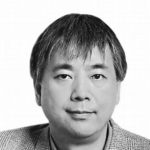 CUI Zhiyuan 崔之元 Professor, School of Public Policy and Management, Tsinghua University Cui Zhiyuan teaches Public Policy Analysis and Comparative Politics and Government at the School of Public Policy and Management of Tsinghua University. As a graduate of China's National University of Defense Technology, Cui went on to…
CUI Zhiyuan 崔之元 Professor, School of Public Policy and Management, Tsinghua University Cui Zhiyuan teaches Public Policy Analysis and Comparative Politics and Government at the School of Public Policy and Management of Tsinghua University. As a graduate of China's National University of Defense Technology, Cui went on to…
Read more... -
13 Jun
-
31 May
#61 – Sweeping away the yellow: the life and fate of Chinese sex workers
Speaker
ZHANG Lijia 张丽佳, Writer, Journalist and Public Commentator
Abstract
Inspired by her grandmother’s story of being sold into prostitution at the age of fourteen, the Beijing-based writer Zhang Lijia decided to take a closer look at the dynamics driving China’s fastest-growing industry – sex trade.
According to Zhang’s research, over ten million women are involved in sex trade, the high majority of which are rural migrant workers, uneducated and unskilled, who move to coastal areas seeking a better life but find themselves with limited employment choices. These workers are pulled into the sex industry with the promise of higher income opportunities and lighter working shifts; compared to the alternative of working in a factory, the offer is too appealing to turn down. Zhang’s work in this field led her to write her first novel, Lotus, which was published earlier this year.
During the talk she will share the insights she gained after interviewing sex workers in Shenzhen and Beijing. Her talk will focus on the reasons girls’ decide to enter this market; the growing gender sildenafil 100mg inequality and rural-urban divide that affects post-reform China; the role of prostitution in the business landscape; and the increasingly harsh government’s campaigns of saohuang 扫黄.
Related Posts
- 10000
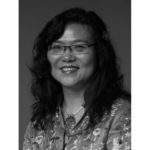 ZHANG Lijia 张丽佳 Writer, Journalist, and Public Commentator ZHANG Lijia is a factory-worker-turned writer, social commentator and public speaker. One of the few Chinese who write regularly in English for international publications, her articles have appeared in The Guardian, The South China Morning Post, Newsweek and The New York Times. She is the author…
ZHANG Lijia 张丽佳 Writer, Journalist, and Public Commentator ZHANG Lijia is a factory-worker-turned writer, social commentator and public speaker. One of the few Chinese who write regularly in English for international publications, her articles have appeared in The Guardian, The South China Morning Post, Newsweek and The New York Times. She is the author…
Read more... -
02 May
#60 Event Report – The End of Europe As We Know It?
ROMANO PRODI, LIVE INTERVIEW BY CAIXIN GLOBUS
TIC Event #60 Post-Event interview with Romano Prodi
President Romano Prodi, Senior Advisor of the Academic Committee of the Torino World Affairs Institute – T.wai, joined ThinkIN China for our event #60 discussing the future of Europe, check it out!
Posted by ThinkInChina on Thursday, 27 April 2017
SPEAKER
Romano PRODI, twice Prime Minister of Italy (1996-1998 and 2006-2008) and
President of the European Commission (1999-2005).REPORT
As 2017 marks the 60th anniversary of the Treaty of Rome, the very project of European integration now faces severe challenges. Will the EU members work together to preserve regional peace and security, against rising geopolitical uncertainties? Can Europe benefit from the new trends in the global economy? How can Europe adapt to a changing international order, while shaping its own path as a 21st century superpower? To address these dilemmas, ThinkIN China welcomed very special guest Romano Prodi to share his decennial experience in European politics with young researchers and professionals at The Bridge Café. A talented politician, an economist, a professor, as well as an acute observer of the great transformations shaping our age, Prodi simply enchanted the audience, underlining the main challenges ahead as well as his vision for the future of the EU.
The following Q&A has been edited for brevity and clarity. The complete video of the interview can be found at Caixin Globus’s QQ channel.
Brexit is perhaps the single most pressing issue for the European Union. What are the reasons behind Brexit and what will be the consequences?
Many observers failed to predict the outcome of the referendum, a signal of the deep crisis affecting the European Union. Brexit is a sad event:
Britain was a very important part of Europe and many countries around the world were looking at Europe through British lenses.
On the one hand, we must admit that the UK has always been a reluctant partner in the EU. During my presidency, the Commission was criticized for allowing for too many “British exceptions”, for instance on the Euro and migration policy. However, after so many years of constant campaign in British politics against the EU, blaming the Euro, Brussels’ bureaucrats, and democratic deficit, it is not surprising that people voted to leave. I do think that Brexit will remain an isolated case, since the British are the only people in Europe who see the United States as a “psychological alternative”. On this note, Mr Trump has already praised the British vote, while he unexpectedly did not shake hands with Angela Merkel.
We will see whether a new community between the UK, the United States, Australia, Canada, and New Zealand will be formed. I do not expect any change of mind with the elections called by Theresa May, nor I do think that a mediation will be possible, even though some kind of accommodation is highly likely. Many questions remain surrounding the future relationship between the UK and the EU, such as the future of the City of London, which has also been chosen as a financial hub by China: will this remain unchanged? Disentangling the UK from 44 years of EU membership will be a long and challenging task. But even if the breakup is definitive, Brexit will not stop the European Union.
What was the reaction of European countries to Brexit, and what are the challenges and opportunities of the so-called “multi-speed Europe” project, which has been recently called for by the European Commission? Such kind of cooperation mechanism is already exemplified by the Monetary Union, but how feasible is its application in the defense, fiscal and social policies?
Reactions in the EU were very interesting. For the first time, Angela Merkel accepted the proposal of a “multi-speed Europe”, which I had put forward long ago. This would be a form of differentiated integration within the EU, whereby certain groups of countries would choose to strengthen their cooperation in given policy areas by unanimity. This will be greatly beneficial for the EU’s progress, undermined by a lack of leadership and cohesion. Things have totally changed since I was President of the European Commission, when the Union was jointly guided by Germany, France, UK, with the important role of other players such as Italy and Spain. At that time, Brussels was indeed dominated by the British bureaucracy, since the UK’s power and cohesion were very strong. Today, after the UK committed suicide by taking an irreversible path, France remains the only country with nuclear armaments and veto power in the UN Security Council within the EU, but its influence has been declining in the last 20 years.
We are at very interesting moment: if Macron runs against Le Pen, he will most likely win.
In this scenario, being Macron the first strongly pro-European candidate in French political history, we would witness an agreement between France and Germany, whereby France will use its veto in the UNSC as a truly European vote. This will make both France and Europe stronger. The next step will be coordinating the different European armies and increasing defense spending, a difficult budgetary decision, but one with huge gains in efficiency: in fact, the complete lack of coordination between the British and the French army was a major problem during the Libyan war.
In the economic sphere, coordination will be more problematic; even the former President of the European Parliament, Martin Schultz, has become less optimistic about Euro bonds after strongly supporting them in the past. The real change which happened in Europe is the decreased relevance of the Commission, which represents the supranational dimension of EU’s decision-making, and a complete transfer of power to the Council, the intergovernmental body, and to Germany within it. Things were very different 20 years ago, when Europe was a “union of minorities”, as a representative of the Romanian Parliament perfectly defined it during the first enlargement process.
What is your view of the European Commission’s newly released White Paper “The Future of Europe”, which outlined five possible scenarios for the path of European integration? Does this document, together with the initiative of a “multi-speed” Europe, signify a renewed power of the Commission, and growing consensus among member states?
Quite the opposite. One of the key tasks of the Commission is to put forward policy proposals:
the fact that it made as many as five proposals, ranging from a federal union to a mere free trade area, makes it clear that it is completely powerless.
When it comes to “multi-speed” Europe, the proposal requires political consensus, as it will work only if 9 member states, including some major ones, agree to put it into effect. And at this stage, any further progress in European integration will be blocked by Hungary and Poland.
As is clear from the rise of populist parties in Europe, but also from what is happening in other regions, democracy and its foundations are experiencing a major evolution; people no longer trust democracy based on its underlying values, they are concerned about whether or not democracy is capable to deliver. We are witnessing a structural change in our democratic institutions, whereby populist movements gain prominence at the expense of traditional parties, and these movements all have strong and uncontested leaders, such as Marine Le Pen in France. The reason behind Euro-skepticism is precisely that Europe has not been delivering. A “multi-speed” trajectory will allow it to finally implement policies that benefit the people, relaunching the European project. The paralysis of Europe today is not a by-product of its bureaucratic system, it is simply a result of its failure to provide for the people.
Another major contradiction is that Europe is absent in major geopolitical crises such as in Syria, Ukraine, and Korea. While it is still the leading global power for industrial production and export, as well as a fantastic and progressive giant on the global scene, Europe still lacks a political union. This task is not easy, as the dichotomy “nation-community” is deeply embedded in the EU’s identity, with a variety of languages, cultures and historical experiences among member states. The European challenge is difficult yet fundamental, as people increasingly feel the necessity of Europe.
People want more Europe to balance against the power of China and the United States. In front of these powers on the global stage, Europe virtually disappeared just in the same way as Italy, a major power during the Renaissance, disappeared after the discovery of America and the first globalization; Europe is now similarly obscured by the competition of China and the United States, who are producing the new “caravans” of the global economy, such as Google, Apple and their Chinese equivalents: Europe has no such giants. The European citizens are now beginning to understand that they will simply be left out of history if major changes do not happen. However, when I proposed the Galileo project to integrate European GPS systems through an agreement with China and Russia, I was blocked because of British opposition, backed by the United States, so that Europe today still does not have a unified system. This is the demonstration that together we can do everything, but divided nothing is possible.
Speaking about economic competitiveness and innovation capacity, Europe has more start-up entrepreneurs per-capita than the United States do, but few European companies manage to scale up shaping the landscape of the global ICT industry. Can greater technological cooperation among European countries bridge this gap, and does linguistic, cultural and geographic diversity within the EU raise transaction costs for new hi-tech startups?
It is absolutely true: the key players in Information and Communication Technology are American and Chinese. However, the strength of European industry is absolutely remarkable. There is indeed great room for product and process innovation, in which Europe is already performing very well; it is a leading player in sectors such as machinery, chemical and pharmaceutical. The challenge is to act as a unique and coherent actor, in order to make the most out of this strong industrial potential and to lead in innovation. In fact, Trumps is trying to defend the American industry not only from China, but also from Europe. German commercial surplus as a percentage of GDP is over 8%, much higher than the Chinese surplus. Of course, if this could be used in a way that benefits European growth, we would be in a much different situation. Italy also has a conspicuous surplus in industrial productivity. While language barriers are easily overcome, what is needed is a real European policy union, in which, for instance, the President of the European Commission is democratically elected through competition between national parties. To bring change with peaceful means, however, takes a long time. The Westphalian system of nation states was based on two pillars, currency and army; the former has already experienced a major change with the monetary union, but longer time will be required for the latter to change. What is sure is that political integration is a matter of survival for Europe.
You mentioned European defense; after the election of President Trump, the United States have become an unstable factor for NATO …
Trump’s decisions are impossible to predict even for the smartest political scientists. Think about the recent changes in Trump’s Russian policy. On a related note, we should bear in mind that interference is not a unique characteristic of Russia: The United States have always interfered with European politics. Today, cyber war magnifies the possibility for countries to interfere in each other’s political and military affairs, and we are witnessing new modalities of interference that we cannot fully identify. Cyber security systems have reached such a sophistication that they are radically changing not only defense policies, but relations between world powers more generally.
Technological transformations have a huge impact also on the labor market; it was estimated that around 59% of European jobs in the manufacturing sector will be lost because of automation: how will the EU respond to this challenge?
This is a global problem. The world has always witnessed great technological revolutions and countries have successfully adapted to those revolutions. Now, the difference today is that no new jobs are created to replace those which are lost due to automation, and at this stage there are no foreseeable solutions to this problem. The world will envision more productive capacity than potential demand. The only possible remedy would be a worldwide agreement to reduce working hours, but this is still unrealistic. In fact, unemployment is the number one problem of our age, and millions of people could be fired around the world.
Prodi concluded by responding to some pressing issues raised by the audience. On the refugee crisis, he pointed at two correlated challenges: on the one hand, the drastic population aging in many European countries, a burden for the economy; on the other hand, the lack of solidarity among member states when it comes to formulating a joint refugee policy, as well as the absolute failure to develop a coherent EU’s African policy to pacify the region. In 2002, he had proposed the creation of an EU-backed Mediterranean Bank, which remained unnoticed. On the One Belt, One Road initiative, he sees its potential as a formidable change in the center and direction of the global economy. However, sooner or later China will be forced to strike a balance between domestic and foreign investments; the recent investment spree in the football industry, in his view, is not a wise choice. The last comment was about his country, Italy, squeezed between economic stagnation and a consistent debt to GDP ratio. On a positive note, foreign debt is still limited, while industrial competitiveness and a wise energy policy represent important strengths for the country. Reducing public spending and repaying debt are now the steps needed.
By Rebecca Arcesati
Related Posts
- 10000
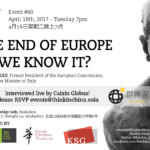 EVENT #60, TUESDAY, APRIL 18TH, 2017 Speaker Romano PRODI Prime Minister of Italy (1996-1998) President of the European Commission (1999-2005) Prime Minister of Italy (2006-2008) After graduation at the Faculty of Law of the Catholic University in Milan and at the London School of Economics, his academic career began…
EVENT #60, TUESDAY, APRIL 18TH, 2017 Speaker Romano PRODI Prime Minister of Italy (1996-1998) President of the European Commission (1999-2005) Prime Minister of Italy (2006-2008) After graduation at the Faculty of Law of the Catholic University in Milan and at the London School of Economics, his academic career began… - 10000
Read more... -
28 Apr
-
28 Apr
Italian Scale-up Initiative in China 2017 – Update
The call for innovative Italian startups in the framework of the ISIC 2017 – Italian Scale-up Initiative in China 2017 successfully closed on April 24th 2017. More than 50 candidates have applied, highlighting the great importance of this initiative. Given the high number of candidacies and to guarantee a better evaluation, the organizers have decided to extend the evaluation period for the Selection Committee to May 10th 2017.
In addition, we hereby announce the composition of the Judging Panel, that will be responsible for the selection of the best 10 startups:
1. BGLINK GLOBAL Pte.Ltd.
2. China Equity Group
3. Shengjing Jiacheng Investment Ltd
4. Sino-Italian Tus-Investment (Zhejiang) Co.Ltd
5. UR Work Investing Co. Ltd
6. Zhongguancun Innoway
Considering the great interest shown for this initiative and based on the applications received, the organizers are finalizing the structure of the Judging Panel and may be open to engage more Chinese Stakeholders. If interested, please refer to bj.partnerships@cameraitacina.com
Stay tuned for more updates!
Read more... -
14 Apr
#59 Event Report – Sustainable Development in China – Reducing Inequality
SPEAKERS
Prof. Klaus Leisinger (University of Basel), Maggie Sun (Handicap International), Wu Di (Easy Inclusion), Marina Kalnitski (Inclusion Factory)
For the first time in its history, ThinkIN China journeyed to the Gulou-area to host an event at SANY Foundation’s 3ESPACE venue in Jiaodaokou. The outdoor terrace, offering a panoramic view of the hutongs, helped create a relaxed ambience at the afterparty, during which participants conversed at length with the speakers and other guests. Even though this event was the first in the new location, a large and diverse audience attended, illustrating that ThinkIN China is a brand name capable of attracting people from all corners of the city.
We were delighted to welcome back Professor Klaus Leisinger, a world-renowned expert on sustainable development and corporate responsibility, who is currently the senior adviser for the Karl Schlecht Foundation. He began his speech reminding the audience of the multifaceted manifestations of inequality, as inequality is not just limited to the monetary dimension. Monetary inequality can be offset by services offered by the state, but these services must be financed through taxation. The issue of what is the optimal tax rate can be viewed from various perspectives; indeed, this topic later evoked a vibrant discussion in the Q&A section.
Is it fair to tax wealthy entrepreneurs for the purpose of financing inequality-reducing measures, or will this practice discourage entrepreneurs from reaching their potential and generating more social wealth?
No matter what answer one gives, no approach perfectly applies in all contexts. Professor Leisinger finished by calling on all of us to reflect on what we, as agents capable of initiating change, can do to improve society rather than relying on others to do so.
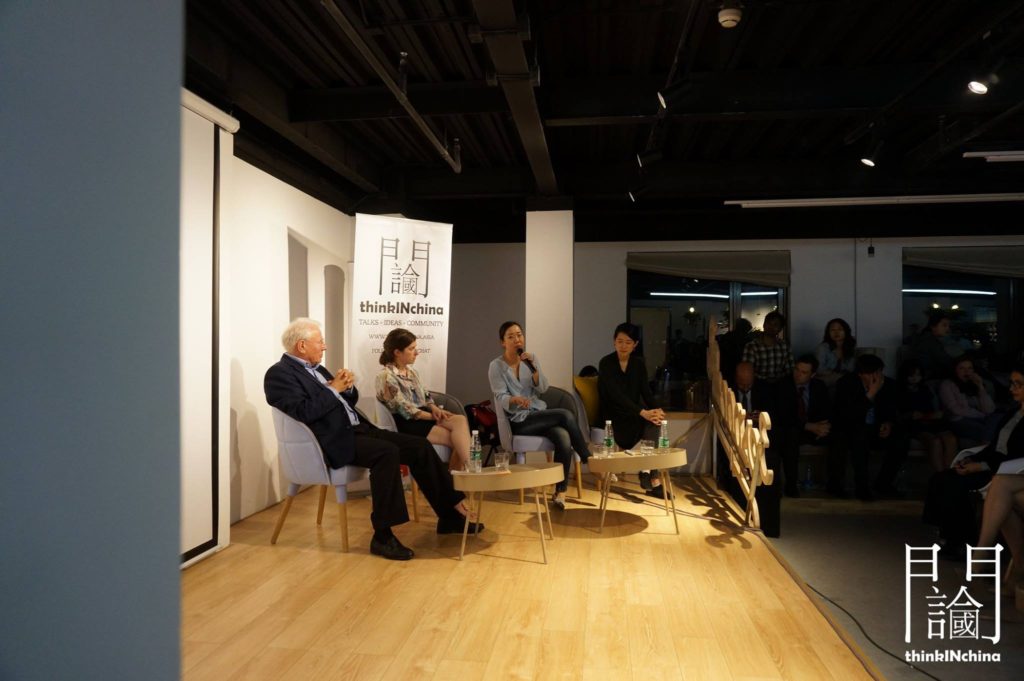
Maggie Sun of Handicap International introduced some of the major challenges facing NGOs working on inequality-reduction in China. The focus of her speech was on disability-related discrimination, with examples drawn from the case-study of Handicap International. For donation-dependent organizations, China’s economic development makes it more difficult to attract funding. Donors need to be convinced that even though China has experienced an incredible economic boom and may no longer qualify as a ‘developing country’, the societal hurdles affecting disabled people remain significant. When thinking about disabilities, most people will have physical impairments in mind, but this is only part of the picture.
Moreover, even those with more visible forms of disability are rarely seen in daily life in China.
They have very limited access to the job market and to education opportunities. Holistic approaches aimed at addressing these challenges are scarce, leading to desperate situations for a clear majority of people with disabilities, especially those living in rural areas. The United Nations Sustainable Development Goals, on which Professor Leisinger has worked extensively, give NGOs in China a new tool to advance their agenda and demand more action from governments.
Marina Kalnitski introduced Inclusion Factory, an economically self-sustainable workshop in Taicang, Jiangsu province, aimed at increasing participation rates of intellectually and mentally-challenged persons in the private sector. To guarantee long-term sustainability, the workshop is organized on a for-profit basis; the organizers hope to promote this model across China. The reason for a for-profit model is very simple: donations cannot be expected to flow in the long-term, so the longevity of a project depends on respect for social principles as well as business principles. Notably, this creates three major challenges. First, the lack of awareness on disability issues, particularly by middle-ranking managers. This can be overcome by demonstrating that the quality and price of products created by those with disability can be competitive. This already hints at the second challenge: staying competitive while working at a slower pace, or ‘turtle speed’. Partnering up with other companies is key; for Inclusion Factory, this means getting customized machinery suitable for its employees. Finally, the role of the government needs to be stressed. Without government support for social enterprises, the goal of increasing inclusion will remain a far-distant one.
Wu Di from Easy Inclusion moved the conversation in a different direction by highlighting the imperfection of existing definitions of disability. The key to diminish exclusion is not only to focus on ‘fixing’ facts, but also to remove barriers in society. Companies should understand that inclusion pays off in economic terms. Inclusion will increase the diversity of ideas and hence lead to more innovation; moreover, it will help create a better working environment. While quotas set by the government create further financial incentives, without a genuine belief in the ability of persons with disabilities, the efforts to meet the quota can be tokenistic. For inclusion to really take off in China, the public will need to change its attitudes and increase its awareness of this issue. In the end, it comes down to every single one of us becoming more open and inclusive. And with such an amazing crowd participating, there is a lot of hope!
Written by Nico Wrobel
Related Posts
- 10000
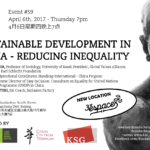 event #59, Thursday, April 6th, 2017 SPEAKERS Klaus LEISINGER, Professor of Sociology, University of Basel; President, Global Values Alliance; Senior Adviser, Karl Schlecht Foundation Maggie SUN, Operational Coordinator, Handicap International - China Program WU Di, Program Director of Easy Inclusion; Consultant on Equality for UNDP in China Marina KALNITSKI, Job Coach,…
event #59, Thursday, April 6th, 2017 SPEAKERS Klaus LEISINGER, Professor of Sociology, University of Basel; President, Global Values Alliance; Senior Adviser, Karl Schlecht Foundation Maggie SUN, Operational Coordinator, Handicap International - China Program WU Di, Program Director of Easy Inclusion; Consultant on Equality for UNDP in China Marina KALNITSKI, Job Coach,… - 10000
- 10000
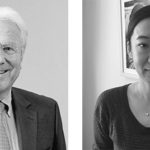 Klaus LEISINGER, Professor of Sociology, University of Basel; President, Global Values Alliance; Senior Adviser, Karl Schlecht Foundation. Professor Klaus M. Leisinger is a social scientist and economist at the University of Basel. His professional career took him for several years to East Africa as CEO of the former…
Klaus LEISINGER, Professor of Sociology, University of Basel; President, Global Values Alliance; Senior Adviser, Karl Schlecht Foundation. Professor Klaus M. Leisinger is a social scientist and economist at the University of Basel. His professional career took him for several years to East Africa as CEO of the former…
Read more... -
11 Apr
Romano Prodi
ROMANO PRODI
Romano Prodi was born in Scandiano (Reggio Emilia, Italy) in 1939.
After graduation at the Faculty of Law of the Catholic University in Milan and at the London School of Economics, his academic career began at the Department of Economics and at the Faculty of Political science of the University of Bologna, where he worked as an assistant professor (1963), associate professor (1966) and lastly full professor (1971-1999) of industrial organisation and industrial policy.
In 1974 he was a visiting professor at Harvard University and at the Stanford Research Institute.
He helped establish the “Italian school of industrial policy”, and acted for several years as the editor of its quarterly journal, L’Industria, Rivista di Economia e Politica Industriale.
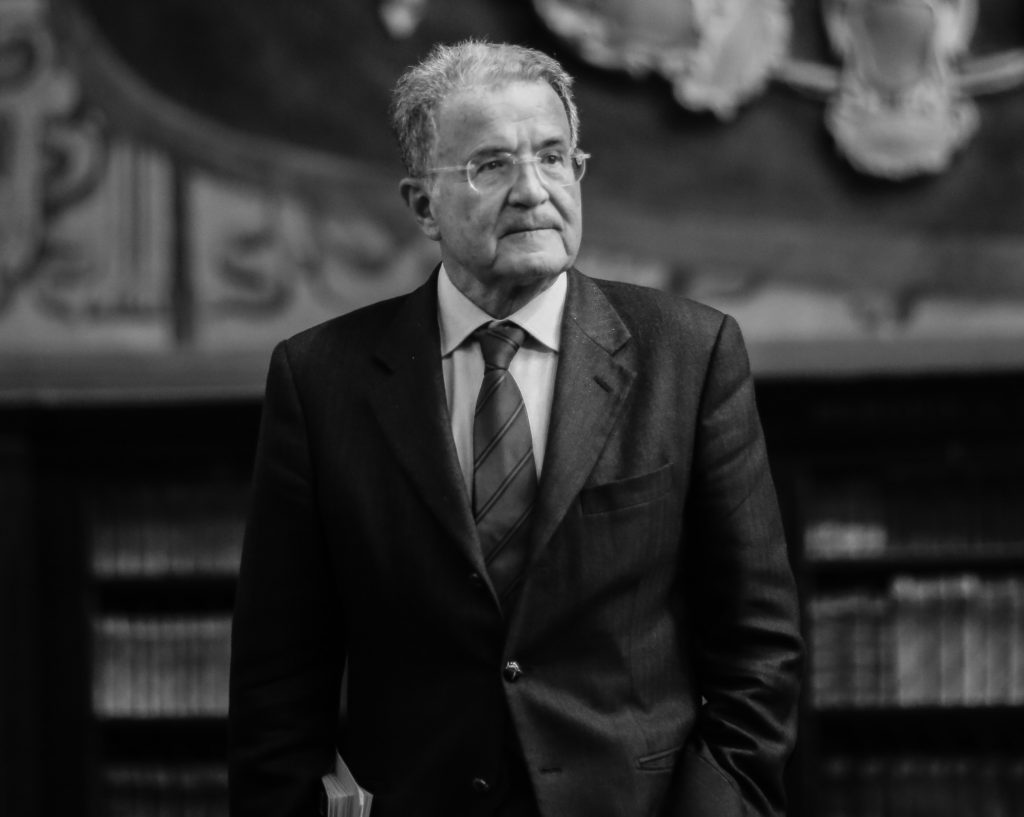
In 1981 he founded Nomisma, the largest Italian institute of economic studies, whose scientific committee he chaired until 1995.From November 1978 to March 1979, Romano Prodi was Minister of Industry.
From November 1982 to October 1989, he was chairman and CEO of the Institute for Industrial Reconstruction (IRI), which was the largest Italian public holding.
Recalled to head the Institute in 1993, he saw through the privatization of a number of industrial, banking and service companies.
In February 1995 he founded the “Olive tree” centre-left coalition, which designated him as its candidate for premiership.
The coalition won the 1996 election and, in May 1996, he was appointed Prime Minister. He remained in office until October 1998. The bold measures introduced by his Cabinet enabled Italy to meet the Maastricht criteria for joining the Euro zone.
From 1999 to 2005 he has been President of the European Commission. During his presidency, the euro was successfully introduced, the Union was enlarged to 10 new countries from Central, Eastern and Southern Europe and the treaty establishing a Constitution for Europe was signed.
In 2006 Romano Prodi was elected leader of the centre-left coalition in Italy and after a victory in the 2006 elections he became Prime Minister, until May 8, 2008.
He is, since then, President of the Foundation for Worldwide Cooperation and in July 2008 to 2010 he has been named Chairman of the United Nations-African Union High-level Panel for Peacekeeping in Africa.
From February 2009 to December 2013 he was Professor at-large at Brown University (USA).
From 2010 to November 2015 he was Professor of CEIBS (China Europe International Business School) in Shanghai and now he is Member of the Board of the same School.
From October 2012 to January 2014 he was Special Envoy of the Secretary-General for the Sahel.
In April 2018 he joined the Board of Advisors of the Boao Forum.
During his academic and institutional career, Romano Prodi has been awarded a number of recognitions and he also holds various honorary degrees.
Currently, Romano Prodi is Senior Advisor of the Academic Committee of the Torino World Affairs Institute, ThinkIN China’s sponsor, and Honorary Chairman of the ChinaMed Business Program.
Related Posts
- 10000
 EVENT #60, TUESDAY, APRIL 18TH, 2017 Speaker Romano PRODI Prime Minister of Italy (1996-1998) President of the European Commission (1999-2005) Prime Minister of Italy (2006-2008) After graduation at the Faculty of Law of the Catholic University in Milan and at the London School of Economics, his academic career began…
EVENT #60, TUESDAY, APRIL 18TH, 2017 Speaker Romano PRODI Prime Minister of Italy (1996-1998) President of the European Commission (1999-2005) Prime Minister of Italy (2006-2008) After graduation at the Faculty of Law of the Catholic University in Milan and at the London School of Economics, his academic career began… - 10000
 ROMANO PRODI, LIVE INTERVIEW BY CAIXIN GLOBUS TIC Event #60 Post-Event interview with Romano Prodi President Romano Prodi, Senior Advisor of the Academic Committee of the Torino World Affairs Institute - T.wai, joined ThinkIN China for our event #60 discussing the future of Europe, check it out! Posted by ThinkInChina…
ROMANO PRODI, LIVE INTERVIEW BY CAIXIN GLOBUS TIC Event #60 Post-Event interview with Romano Prodi President Romano Prodi, Senior Advisor of the Academic Committee of the Torino World Affairs Institute - T.wai, joined ThinkIN China for our event #60 discussing the future of Europe, check it out! Posted by ThinkInChina…
Read more... -
11 Apr
#60 – The End of Europe As We Know It?
EVENT #60, TUESDAY, APRIL 18TH, 2017
Speaker
Romano PRODI
Prime Minister of Italy (1996-1998)
President of the European Commission (1999-2005)
Prime Minister of Italy (2006-2008)After graduation at the Faculty of Law of the Catholic University in Milan and at the London School of Economics, his academic career began at the Department of Economics and at the Faculty of Political science of the University of Bologna, where he worked as an assistant professor (1963), associate professor (1966) and lastly full professor (1971-1999) of industrial organisation and industrial policy. In 1974 he was a visiting professor at Harvard University and at the Stanford Research Institute. He helped establish the “Italian school of industrial policy”, and acted for several years as the editor of its quarterly journal, L’Industria, Rivista di Economia e Politica Industriale. In 1981 he founded Nomisma, the largest Italian institute of economic studies, whose scientific committee he chaired until 1995. From November 1978 to March 1979, Romano Prodi was Minister of Industry. From November 1982 to October 1989, he was chairman and CEO of the Institute for Industrial Reconstruction (IRI), which was the largest Italian public holding. Recalled to head the Institute in 1993, he saw through the privatization of a number of industrial, banking and service companies. In February 1995 he founded the “Olive tree” centre-left coalition, which designated him as its candidate for premiership. The coalition won the 1996 election and, in May 1996, he was appointed Prime Minister. He remained in office until October 1998. The bold measures introduced by his Cabinet enabled Italy to meet the Maastricht criteria for joining the Euro zone. From 1999 to 2005 he has been President of the European Commission. During his presidency, the euro was successfully introduced, the Union was enlarged to 10 new countries from Central, Eastern and Southern Europe and the treaty establishing a Constitution for Europe was signed. In 2006 Romano Prodi was elected leader of the centre-left coalition in Italy and after a victory in the 2006 elections he became Prime Minister, until May 8, 2008. He is, since then, President of the Foundation for Worldwide Cooperation and in July 2008 to 2010 he has been named Chairman of the United Nations-African Union High-level Panel for Peacekeeping in Africa. From February 2009 to December 2013 he was Professor at-large at Brown University (USA). From 2010 to November 2015 he was Professor of CEIBS (China Europe International Business School) in Shanghai and now he is Member of the Board of the same School. From October 2012 to January 2014 he was Special Envoy of the Secretary-General for the Sahel. During his academic and institutional career, Romano Prodi has been awarded a number of recognitions and he also holds various honorary degrees.
Abstract
As 2017 marks the 60th anniversary of the Treaty of Rome, the very project of European integration now faces severe challenges.
Will the EU members work together to preserve regional peace and security against rising geopolitical uncertainties?
Can Europe benefit from the new trends in contemporary global economy?
How may Europe use its soft and hard powers to cope with the changing international order, and shapes its own path as a 21st Century superpower?
Time: 18.00 – Registration commences; 18.50 – Registration closes
Venue: The Bridge Cafe
Location: Rm 8, Bldg 12, Chengfu lu, Beijing 北京市海淀区成府路五道口华清嘉园12号楼8号
Price: FREERSVP
In order to RSVP send your name & affiliation to events@thinkinchina.asia. Please note that there’s a limited number of seats, therefore successful confirmation of registration will be sent according on a first-come-first-served basis.
Conditions
1. An ID must be shown upon arrival
2. Guests will not be allowed to enter after the registration closes (18.50)
3. In order to speed up security procedures at the entrance, large items are not recommended to be carried
Related Posts
- 10000
- 10000
 ROMANO PRODI, LIVE INTERVIEW BY CAIXIN GLOBUS TIC Event #60 Post-Event interview with Romano Prodi President Romano Prodi, Senior Advisor of the Academic Committee of the Torino World Affairs Institute - T.wai, joined ThinkIN China for our event #60 discussing the future of Europe, check it out! Posted by ThinkInChina…
ROMANO PRODI, LIVE INTERVIEW BY CAIXIN GLOBUS TIC Event #60 Post-Event interview with Romano Prodi President Romano Prodi, Senior Advisor of the Academic Committee of the Torino World Affairs Institute - T.wai, joined ThinkIN China for our event #60 discussing the future of Europe, check it out! Posted by ThinkInChina…
Read more... -
31 Mar
Wu Di | Marina Kalnitski
WU Di, Programme Director of Easy Inclusion; Consultant on Equality for United Nations Development Programme (UNDP) in China
Previously, Di led the programmes on rule of law and equal rights at UNDP. As manager of the UNDP project under the UN Partnership on the Rights of Persons with Disabilities (UNPRPD) in China, Di’s work focused on improving access to justice for persons with disabilities, and supporting the implementation of the UN Convention on the Rights of Persons with Disabilities (CRPD) in China. As a certified Disability Equality Training (DET) facilitator, Di also provides trainings on disability inclusion for key decision-makers in public and private sectors. She holds a Master’s degree from University of Oxford with a research focus on the culture of discrimination.
About Easy Inclusion
Easy Inclusion (EI) is a social enterprise that drives workplace inclusion for women and men with disabilities and facilitates inclusion for employers. EI was set up by ex-United Nations personnel with significant experience of disability inclusion in workplaces and mainstream services. EI brings UN standards, connections, methods and know-how to companies and organizations working in China, enabling them to benefit from best-quality methodologies, techniques and systems that are effective in China.
Marina KALNITSKI, Job Coach and SIA Program Director at ‘Inclusion Factory’, Taicang, China
Marina is a social activist focusing on the empowerment of individuals with disabilities through education, skills development and occupation; she is specializing in projects that are focusing on the inclusion of the “other” back into the society.
Marina is co-managing the first industrial workshop in China which provides respectful and dignified employment for intellectually and mentally challenged individuals.
In addition, she initiated and has been leading the Social Inclusion Academy [SIA] – a full 3 months training program for the certification of qualified Job Coaches who will lead the social integration of challenged individuals into china’s work force.
Formerly, Marina coordinated a unique integration program for young adults with intellectual disabilities, later on, founded and managed a Language training center for children with learning disabilities.
About Inclusion Factory
Inclusion Factory is based on the philosophy that people with disabilities can and want to be productive members of society. They specialize in working with intellectually challenged individuals in a professional working environment.
Read more... -
31 Mar
Klaus Leisinger | Maggie Sun
Klaus LEISINGER, Professor of Sociology, University of Basel; President, Global Values Alliance; Senior Adviser, Karl Schlecht Foundation.
Professor Klaus M. Leisinger is a social scientist and economist at the University of Basel. His professional career took him for several years to East Africa as CEO of the former Ciba Pharmaceuticals regional office and he was Managing Director and Chairman of the Board of Trustees of the Novartis Foundation until 2013. He is engaged in corporate responsibility issues and actively promotes a corporate culture of dialogue with stakeholders in international policy, development cooperation and business ethics. He held numerous advisory positions in organizations such as the UN Global Compact, the United Nations Development Program (UNDP), the World Bank, the World Economic Forum (Global Agenda on Human Rights) and the Karl Schlecht Foundation.
Maggie SUN, Operational Coordinator, Handicap International – China Program
Maggie has a Degree in International Business, Concordia University. She has been working in the disability field for eight years, and previously worked for a local DPO. She is an expert on disability issues, civil society development in China and Sustainable Development Goals
About Handicap International
Handicap International is an international solidarity organization specialized in the field of disability. Non-governmental, non-religious, non-political and non-profit making, it works alongside people with disabilities. The organization was created in France in 1982 and is now active in 59 countries. As a co-founder of the International Campaign to Ban Landmines, the organization received the 1997 Nobel Peace Prize for its campaign for the victims of land mines.
China Program Handicap International has been working in China since 1998. Its objective is to promote the rights and socio-economic inclusion of people with disabilities, especially in rural China, through pilot projects run in close cooperation with government and civil society partners as well as disabled person’s organizations. Its work is guided by the principles of the United Nations Convention on the Rights of Persons with Disabilities (UNCRPD), which was ratified by China in 2008. Present projects are located in Beijing, Yunnan and other areas in China.
The mission of Handicap International includes preventing and limiting the impact of disabilities, by offering assistance to people with disabilities and those at risk of disability and supporting them in their efforts towards autonomy and social integration. Handicap International vision: a world in which all forms of disabilities can be prevented, cared for or integrated, and in which the rights of people with disabilities are respected and applied.
Read more... -
13 Mar
Italian Scale-Up Initiative in China
Article originally published on the website of the China-Italy Chamber of Commerce, http://cameraitacina.com/en/news/isic-2017-italian-scale-initiative-china-2017
The China-Italy Chamber of Commerce, in collaboration with Tech Silu and ThinkIN China, with the support of Zhongguancun Inno Way and Startup Business (media partner), presents the first edition of the project: ISIC 2017 – Italian Scale-up Initiative in China 2017, pioneer project that aims to develop concrete opportunities for vetted Italian Startups to succeed in China!
In the frame of, and in synergy with, increasing cross-border and soft-landing programs, it has the potential to serve as a breakthrough in Sino-Italian startup integration, as well as in the broader framework of international development.
ISIC aims to empower the Sino-Italian ecosystem by developing a matchmaking model between Italian startups and key stakeholders from the Chinese innovative Ecosystem to create scaling-up opportunities for Italian innovative companies in China.
The Startups will be vetted by a Selection Committee not only analyzing their Business Models but also their potential and matching the needs of the Chinese market. Afterward, they will be screened by a Judging Panel composed of key players of the Chinese Startup Ecosystem. During the matchmaking phase, the Panel will select 10 Startups to enter the Chinese Virtualisation phase, in which the ISIC organizers will help the startups to remotely boost their Chinese market and connections.
The Startups which obtained concrete results will not only have the chance to share their achievements to the public but also gain additional resources to foster their development in China.
ISIC2017 focuses on sectors that are at the intersection of Italian excellencies and Chinese strategic demands, such as:
FoodTech & AgriTech; FashionTech & Design; Life science & HealthTech; GreenTech & New Energies; Smart Manufacturing & Robotics; Smart Cities/Buildings & Home; IoT and New Materials; AI & Machine Learning.
Startup with proven business models, B2B or B2C easily convertible into B2B for the Chinese market, will be preferred.
For a successful submission, all applicants must apply from Monday 10th April up until Monday 24th April (23:59 CEST), on F6S/ISIC2017 including a list of documents listed in the attached “Competition Description and Regulations”.
Download the Abstract and Regulation here.
Please click here to download the Press release.
Are you ready to take scale up in China? Find it out through ISIC2017!
Read more... -
09 Mar
Roger Ames
Roger AMES, academic director of Berggruen Institute’s Philosophy and Culture Centre, Humanities Chair Professor at Peking University
Roger T. Ames was professor of philosophy and editor of “Philosophy East & West” at University of Hawai‘i at Manoa. He is now the academic director of Berggruen Institute’s Philosophy and Culture Centre, and is also Humanities Chair Professor at Peking University. His recent publications include translations of Chinese classics. He has also authored many interpretative studies of Chinese philosophy and culture: “Thinking Through Confucius” (1987), “Anticipating China: Thinking Through the Narratives of Chinese and Western Culture” (1995), and “Thinking From the Han: Self, Truth, and Transcendence in Chinese and Western Culture” (1997).
Read more... -
09 Mar
Zhao Tingyang
ZHAO Tingyang 赵汀阳, philosopher, Chinese Academy of Social Sciences
Zhao Tingeing is regarded as one of the most important and famous philosophers of contemporary China. He is professor of philosophy at the Chinese Academy of Social Sciences(CASS) and at Renmin University.
His works are mainly on ontology, ethics and political philosophy topics. In 2005, he published ‘The Tianxia System: An Introduction to the Philosophy of a World Institution’. His latest books published in 2016 are “A Possible World of All-Under-Heaven System” and “The Making and Becoming of China”.
Read more...


